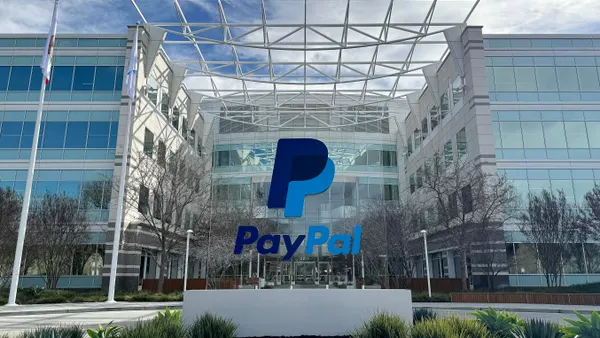ValueAct Capital cutting its stake in Fiserv over the past year suggests to one analyst covering the company that the investor believes activism may no longer be needed at the payment processor.
San Francisco-based activist ValueAct Capital held 14.6 million shares in Fiserv last year at its peak ownership, Monness, Crespi, Hardt & Co. analyst Gus Galá said in a Dec. 1 note to investor clients. ValueAct began to trim its position in the company in the first quarter of this year; its stake now sits at about 5.3 million shares, Galá noted.
It’s possible ValueAct “believes the changes needed to unlock shareholder value have largely been implemented or that incremental returns from these improvements are potentially priced in; activism is no longer needed (Fiserv has reached its potential),” Galá wrote.

Since the fourth quarter of 2020, ValueAct “has been a vocal proponent helping management better position, highlight, and unlock the value of the Clover offering,” Galá wrote in the note, referring to Fiserv’s small and medium-sized business point-of-sale unit.
Galá, who covers Brookfield, Wisconsin-based Fiserv and digital payments company Block, among others in the market, has a neutral rating on Fiserv. He spoke with Payments Dive Nov. 27 about the outlook for Fiserv and the competition its Clover business faces from Block’s Square and other rivals.
Editor’s note: This interview has been edited for clarity and brevity.
What do you make of ValueAct reducing its stake in Fiserv?
GUS GALA: Maybe they’re just taking profits. They got in when it was like $80 a share. It’s riding at $120. That’s a nice gain. It’s probably prudent portfolio management.
What are you cautious about as it relates to Fiserv?
Clover has grown like a weed. But if you’re of the thought that Square’s going to slow down, I’m not sure why people think Clover won’t slow down.
The story really is, Clover versus Square. And you can make the argument for Clover, Square, Toast in the restaurant vertical. And eventually they'll all reach product parity. But right now, Square admittedly has said, we’re not doing as well as we could there. And you see it as Clover outgrowing Square over the last two years, in terms of volume size.
In terms of annualized volume, Clover’s doing more volume. But when I look at the ability to drive more modules – meaning better software attachment, higher penetration of software and services – I think Square’s done a better job.
For Clover to generate $3.5 billion in revenue in 2025, and $4.5 billion in 2026, you need to see an uptick in value-added services penetration. It's been flat at 17% for the first three quarters of this year. So while they talked about growing it during the investor conference, it's still a “show me” to me on that vector.
So you’re saying Square might be lagging behind right now, but you expect that rival to catch up?
Essentially, yes. I think Jack Dorsey stepping into Square was not just to save that business. He thinks it’s time to drive those network effects among Block’s businesses.
Fiserv CEO Frank Bisignano made the point at Fiserv’s investor day presentation that they have 12,000 software engineers alone, whereas Block’s going to cap their entire organization at 12,000 people. But I think the heritage of product innovation, product led, really is something in that Square DNA, that Jack Dorsey DNA.
Fiserv has sold a handful of business units over the past 18 months. Do you expect more divestitures from the company moving forward?
I think they view the company as a complete asset. Being able to get people to sign up for PIN debit because it’s cheaper for a merchant to accept debit cards can help them cross sell into merchant acquiring, for example. They’re more of a net buyer at this stage. I don’t think they’re looking to get rid of any parts. Maybe their smaller non-core parts.











